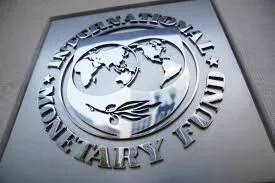IMF Visit Uncertain
The International Monetary Fund (IMF) was expected in Zambia between March 18 and April 1. However, as a result of the coronavirus outbreak the Fund’s visit may be cancelled.
Last week staff at the IMF’s Washington HQ were advised to work from home until further notice after a case of COVID-19 was confirmed among the team. It had also suspended all mission travel to European countries designated at Level 3 community spread areas by the Centers for Disease Control. Reports in the Malawian press claimed that the IMF had trimmed its team which was in the country for a review of programs as a result of the pandemic.
As concerns grow regarding the financial, as well as the human, impact of the pandemic the IMF has stated that it is ready to mobilize $1 trillion in loans to support its 189 member nations.
Among the items scheduled for discussion during the Zambia visit were expected to be a potential bailout programme.
The programme has been under discussion, on and off, for more than five years, with the Government rejecting an initial proposal in 2015, before returning to the negotiating table.
The stumbling block appears to be concerns regarding debt sustainability, which has been a long-running concern on the fund’s part. In 2018 the IMF warned that discussions could only progress once Zambia had implemented credible measures to manage the country’s growing debt burden.
External debt stock now stands at US$11.2 billion, up from US$10.2 billion in June 2019 and just US$1.9 billion in 2011.
Speaking ahead of the visit the Minister of Finance Dr. Bwalya Ng’andu aired his frustration at the IMF’s stance and is quoted by The Mast as saying “They were very clear that one of the things they want to see before we can get down to the programme is exhibiting debt sustainability. Now, the problem with that, and I did mention to them in the meeting that when you say that we can only have a programme after you have exhibited debt sustainability, it’s like you are going to give me an umbrella after the rains.”
Relations with the IMF have proved trouble under President Lungu’s government. Having rejected a proposed deal in 2015, the President then challenged the IMF to leave the country if they felt he had gone beyond the norms of good governance and democracy following the declaration of a state of emergency in 2017. The fund subsequently withdrew its representative to Zambia in August 2018.

